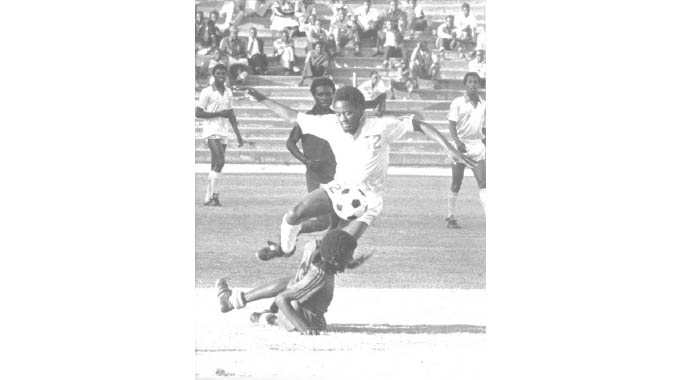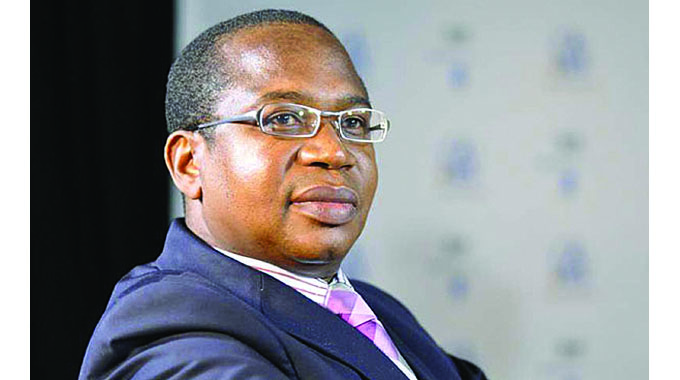The Legend, The Dude, dies . . . Championship winning ex-gaffer hailed as a fighter

Eddie Chikamhi-Senior Sports Reporter
CAPS United’s 1996 championship winning coach, Steve “The Dude” Kwashi, was a strong fighter, who braved the last 20 years of his life through pain.
Kwashi died at his home in Harare in the early hours of yesterday morning, due to suspected Covid-19 complications.
He was 67.
Kwashi was “robbed” two decades of what promised to be a fulfilling coaching career following a road traffic accident that left him debilitated.
The three-time Premiership Coach of the Year is counted among the CAPS United legends after he helped the club win their first Premiership title post-independence, in 1996.
Before his death yesterday, the veteran coach had been down for exactly 20 years with permanent physical disabilities he sustained from the accident that occurred in March 2001 while coming from a Premiership match against Hwange.
The tragedy left him in a coma for close to seven months. He also experienced memory loss following the severe injuries to his head.
Kwashi has had to rely upon his family for support all the years as he struggled for speech and other routine physical activities like walking.
But during his heyday, Kwashi was also a fantastic player who could break his way into the star-studded Zimbabwe Saints side of the 1970s before joining Dynamos in 1981.

Kwashi turned out for Dynamos in 1981 after having left Bulawayo-based side Zimbabwe Saints where he made a name for himself in the 1970s.
A fast winger who could also score goals, Kwashi terrorised opposition defenders on the right, with teammate Andrew “Mai Maria” Kadengu also a menace on the left during his most successful days at Saints.
Former teammate Gibson Homela yesterday told The Herald that it was unfortunate Kwashi could not live to realise his maximum potential after his coaching career was cut short in a car accident.
“Steve was a very good player and it appeared he had also transformed himself into a fine coach after his playing career,” said Homela.
“He performed exceptionally well and won some trophies.
“I remember his team was unplayable in 1996. Unfortunately, the accident struck and a promising career in coaching was cut short.
“I went to visit him days after the accident and was very miserable when I saw him. When I got there, there was this blankness in his look.
“He just stared at me and I realised something was not alright. But then after some time he started smiling at me, as if to send a message that I have recognised you.
“We played football together for a very long time at Zimbabwe Saints. He was a very talented young man, playing right wing and was very fast.
“I took him as a young brother in the sense that we both hailed from Zvishavane. When he left for Harare, I was also transferred by my employers, Edgars, to Harare but we still managed to fulfil the fixtures for Saints, who were based in Bulawayo.
“We teamed-up and had our own private training sessions at the Kopje area in Harare. There were four of us because we were also joined by Labani Kandi and Lucky Rufani.
“Every weekend I made it a point that I transported these guys to Bulawayo for the Saints’ games and we never missed a fixture. Such was the commitment, despite the distance,” said Homela.
Kadengu also said they had memorable games with Kwashi. The ageing ex-Saints forward said he struck a good friendship with Kwashi despite the difference in their age.
“I cannot explain what I am feeling right now. I played with him for a long time and we were very good friends on and off the pitch.
“It was during those days when we had out and out wingers. He was right-footed and I was left-footed winger but sometimes we could swap flanks depending on the opponents that we were playing that day,” said Kadengu.
“We had many memorable games together and we would always encourage one another to do well. We also used to play for our coaches because fans were particular about the results. But those days there was great competition in the Super League so we had to give it our all.
“Even after we separated from Saints, we still kept in contact. Unfortunately, Kwashi had been unwell for some time and I must say he was a strong man considering what he went through after that accident.
“It was difficult for him and for the family but he was strong. It was also bad, we could not travel of late so that we could get an opportunity to see him because of the Covid-19 situation in the country,” said Kadengu.
Ex-CAPS United and Zimbabwe international, Alois Bunjira, told The Herald that Kwashi fought a brave fight and will always remember him for his resilience.
“It is always a shock to hear that somebody close to you has passed on. It’s very sad,” said Bunjira.
“This is somebody that we have grown to be close to and to love for a long time to the extent that we had become a family.
“My deepest condolences to the Kwashis. I know they are a close knit family. But I have to give credit to him also. He was a strong man. He fought a tough fight on and off the pitch and it was amazing he had remained strong even after that accident,” said Bunjira.
In 1996, Kwashi was handed the monumental challenge to try and guide CAPS United to the league championship, the elusive and grand prize which the Green Machine had last won in 1979.
His son Fungai Tostao Kwashi, who also played under his father at Makepekepe, said funeral arrangements were still being worked on. Kwashi also previously worked with Black Aces with distinction. He led “Shaisa Mufaro” to the Division One title in 1991 and was part of the backroom staff when Aces won the Super League title in their first season coming from Division One the following year.
UK-based former Dynamos goalkeeper Japhet Mparutsa also paid his tribute to Kwashi.
“Sad to hear about the death of Legendary player and coach Steve “Bla Steve” Kwashi. He was also known as “The Cool Dude”
“Many of us might not know that I played with Steve Kwashi at Dynamos, he was my number seven after Shaya retired. He used to call me “Tafi” and I wondered what that meant.
“Years later, I went to his shop In-Sport and again he called me “Tafi” I decided to ask him what the nickname meant.
“You are tough, so I call you Tafi!” That was Bla Steve for you, always humorous. He was a good man and easy to relate with.
“He played for Chibuku, Black Aces, Zimbabwe Saints (he lived in Harare then Salisbury and travelled to Bulawayo for matches). This shows what a special player he was.
“It is such a shame that the horrific accident took away a large part of his football life. Without the accident, he would have become one of the best coaches that Zimbabwe ever produced.
“We thank the family for standing with him and looking after him to the best of their abilities. Could we as a football family have done more to help? I think so but as is usually the case in all football matters, it is out of sight, out of mind.
“We should do better as a football community, stick together in dark times. We should not forget our heroes. Go well Bla Steve, you fought a good fight. Your football story will live on,” said Mparutsa.
Kwashi started playing first division football in 1969 at 16 years when he turned out for Mashonaland United (later Zimbabwe Saints) juniors.
In 1972, he was recruited by James Nxumalo to play for Sables in Harare. He was the youngest player in that team which included veterans like Booker Muchenu, Daniel Chikanda, Simon Supiya, Isaac Mafaro, Wilfred “Tap Tap” Santana, Wilson Mhande, Cloud Chanetsa, Paul Tsumbe, Peter Nyama, Stanley Nyika and Joseph Galloway.
When Sables disbanded in 1975, he returned to his former club Zimbabwe Saints, who had a star-studded squad with the likes of Steven Chuma, Ebson “Sugar” Muguyo, Douglas Maneto, Itai Chieza, goalkeeper Musa Muzanenhamo, William Sibanda, Phillimon Dangarembwa, Homela, Thomas Chipembere, Zebron Magorimbo, Max “Shaluza” Tshuma, Kadengu and Isaac Banda. They were under the guidance of coach Tendai Chieza.
He was rated as one of the fastest and most talented wingers in the Super League at his peak. Unfortunately, national team remained a distant dream because of the competition at the time as he had to contend with the likes of George “Mastermind” Shaya and Robert Godoka for the same place.
Kwashi left Saints in 1981 to join Dynamos where he featured for two years. He rounded off his playing career at BAT Ramblers in 1984-85 in Division One.
Unfortunately, Ramblers lost out on promotion to the Super League twice by a point to uniformed forces teams, Black Rhinos and Black Mambas.
His coaching career took off in 1985 at Blue Line Aces where he was twice voted the Super League Coach of the Year in 1988 and 1989.









Comments